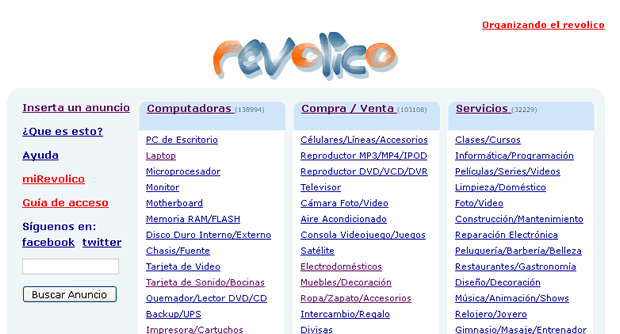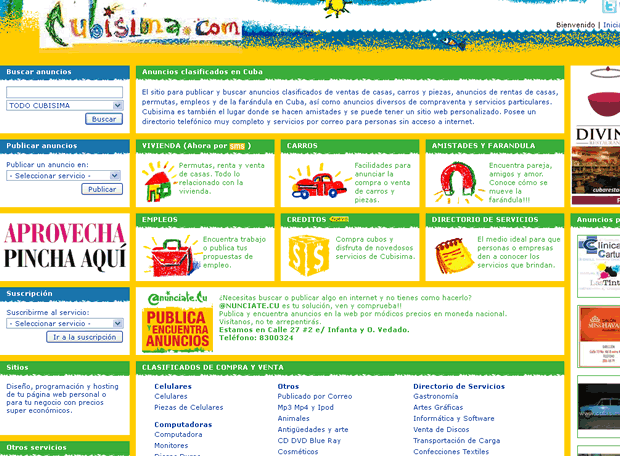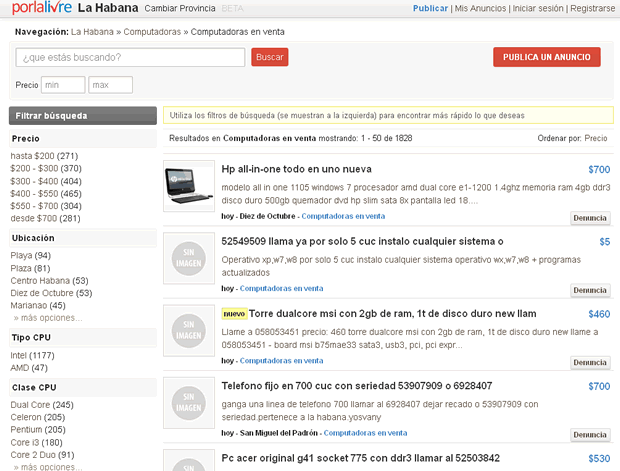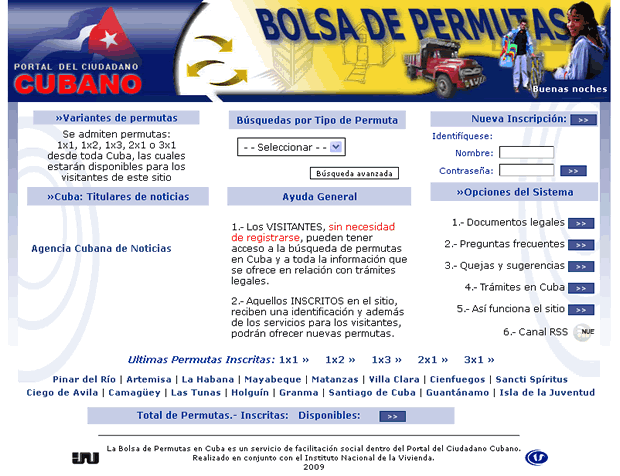In 1996, at the the Cuban government stores 30 eggs were going for over five dollars. At the same time, even in the so-called “shopping” (stores) portals, vendors were offering the same products at a lower price. With a quite poor salary, the majority of the Cuban population was evading official prices and seeking for alternative livelihoods in an underground market that for over a decade has been able to adjust to the changes of times.
More than five years later, in 2002, a Pentium IV computer could be bought in Havana for 1,800 dollars. Other less sophisticated machines went from 500 to 900 USD, due to the absence of these in national stores. In December 2001, a resolution was approved by the Ministry of Domestic Trade prohibiting “the sale of computers, offset printing, duplicating machines, photocopiers and other means of mass printing and related parts and accessories to all associations, foundations, nonprofit civil societies and individuals.”
Just during this time “email accounts grew from about 60,000 in 2000 to over 100,000 in 2001”, according to statements made by Melchor Gil, then Deputy Minister of Informatics and Communications, to Inter Press Service. In parallel, they began to bid on the black market Infomed and full Internet accounts, at 30 and 50 dollars per month respectively.
“In 2005 I got an Internet account for 50 dollars,” says a former client. “At that time I had Infomed because of my grandfather, but my boyfriend had just left for the United States and I needed to chat with him, seeking information for college and since he was sending the money we could afford it. Every month, on the 5th, a boy came to collect the money and give us the password. One day ETECSA called, we were told that it was illegal and we could even lose your phone. That’s when we dropped it. ”
It was the golden age of information distribution lists via email. Hundreds of people, all young, subscribed to news services, meeting people sites, fan clubs and places of purchase, sale and exchange of goods or services. Right around that time, Hiram Centelles was a young boy in college and along with another friend was “curious to develop a project on the Internet, do something that would be useful and that many people would like to use.”
“If someone wanted to buy, sell or trade something could send an email to a service which then forwarded it to thousands of subscribers. As you can imagine, there was a correlation between the number of users of these lists and the difficulty of using them, “Centelles recalls. The ads were in turn redistributed by those who had access to the Internet or the national grid. The dissatisfaction with that system to buy, sell and exchange led to the emergence of what is now known as the Cuban Craigslist: Revolico.
The centralization of retail by the state and lack of supplies with decent quality / quantity standards that were able to cope with the national consumer’s demands allowed the consolidation and the rapid growth of a buy-sell option that made easier for any citizen, although he would usually do it, to become seller or buyer as needed.
“Revolico took the information from mailing lists which reflect the needs of users and created a centralized automatic system that eliminated one of the main problems faced by email distribution lists, the dispersion of the contents”, Alejandro Cuba, computing specialist.
“If suddenly you had something to sell, you could put it in and wait for Revolico to contact you by phone. Even if you did not have Internet access, always you had a friend willing to upload your information because it was – and still is – really easy, “he adds.
Although its access was blocked early in some work and public placesin Cuba, mainly due to the illegal nature of this market, for its creators, Revolico “has often represented the first contact with Internet for our users.”
In 2013, the prohibitions to buy computer equipment have been repealed and the price of eggs ranges from 1.50 to 2 Cuban pesos (CUP) per unit. However, the Cuban government market still cannot meet the widespread demand for products and services of the population.
The measures implemented since 2007 and the Guidelines of the Economic and Social Policy of the country in 2011 have been translated into discrete growths, despite incentives to self-employment.
With a population of over 11 million people, Cuba currently has a 16 percent Internet penetration, according to the latest data from the National Statistics Office. Under these conditions, according to Centelles “is normal that the effort needs to be done to achieve access, only justified by a basic need, in this case the need to sell something second hand, you find someone who provides a service or trade your house. ”
Until April this year, there were 137,975 Revolico ads in the computer category, more than 100,000 in residential sales and 42,165 in housing.
“I’m buying two houses, one for my mom and one for my brother”, one user says. “I searched the Internet and immediately a lot of options appeared. Imagine the work that would mean to seek this information out of the network. It was simple, find, choose, call, pay, “he concludes.
For Rolando, 23, the search was even more complex. “I had Internet access and wanted to set up a home network so I can connect from mobile and my parents’ computers. I had to convince them and it was difficult, but eventually they agreed. “”Where did you find the device?” I asked him while I point at a blue hub with an antenna that cannot be purchased in retail stores or imported according to customs regulations. “Where will it be? In Revolico ” he answers.
In December 2011, Cuba adopted resolutions 320 and 321 of the General Customs of the Republic governing the import of goods by individuals, a move that preceded the immigration reform, which abolished the exit permit and invitation letters as conditions to leave the country.
The increase of travels abroad by citizens living on the island could significantly increase the amount of goods sold in the Cuban black market, given the low prices of them outside Cuba and the possibility of evading taxes by not declaring themselves as private sellers.
“I come every year from Miami and I don’t bring anything for me or my family. All my allowed pounds are for clothes, shoes, flash memories, food and medicines to either sell in the house or through web sites, “a lady said. To his granddaughter, a youngster with Internet access from the University, “Revolico is falling behind. In Facebook you find pages where they bring tailored clothing and per order. You can even choose sizes and colors. ”
For those without access to the network there are offline distributors. “When my boyfriend returned, we sold a few things through Revolico” a client says. “A week after removing the ad, several people were still calling at our cell. We later learned that they received a copy of the site offline to be redeployed using flash memory and, since it was not updated in real time, continued showing our ads. ”
- Bolsa de Permutas Homepage
There are government initiatives to facilitate the purchase, sale and exchange of goods and services through Internet. The site “Permutas en Cuba” and the digital version of “Ofertas”, recently announced on the blog KokaKuba, are some of them. In this regard, Centelles notes that “the development of similar solutions (to Revolico) from state institutions is a reaffirmation of what we do is useful and necessary. Increasing the options provided will benefit the interests of the end user. ”
In 2002, the retired economist Rafael Garcia, in an interview with IPS, stressed “as long as demand exists and the government cede rightful space to meet it, the black market will play its role and people will buy what it needs illegally” . Due to these factors and their flexibility and capacity for renewal, the underground economy will continue to exist in the arcades and shopping centers, as well as in Facebook pages.













